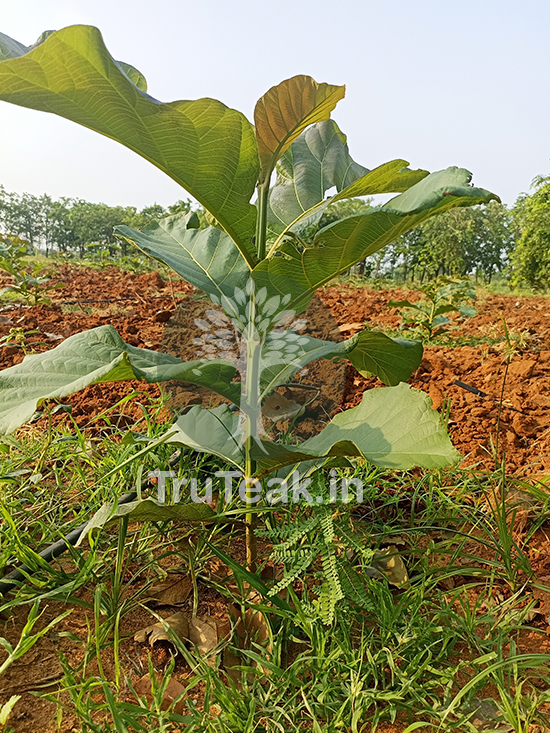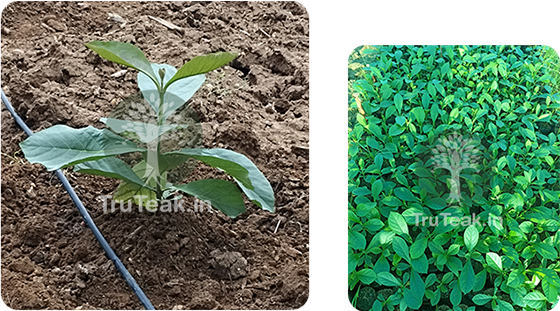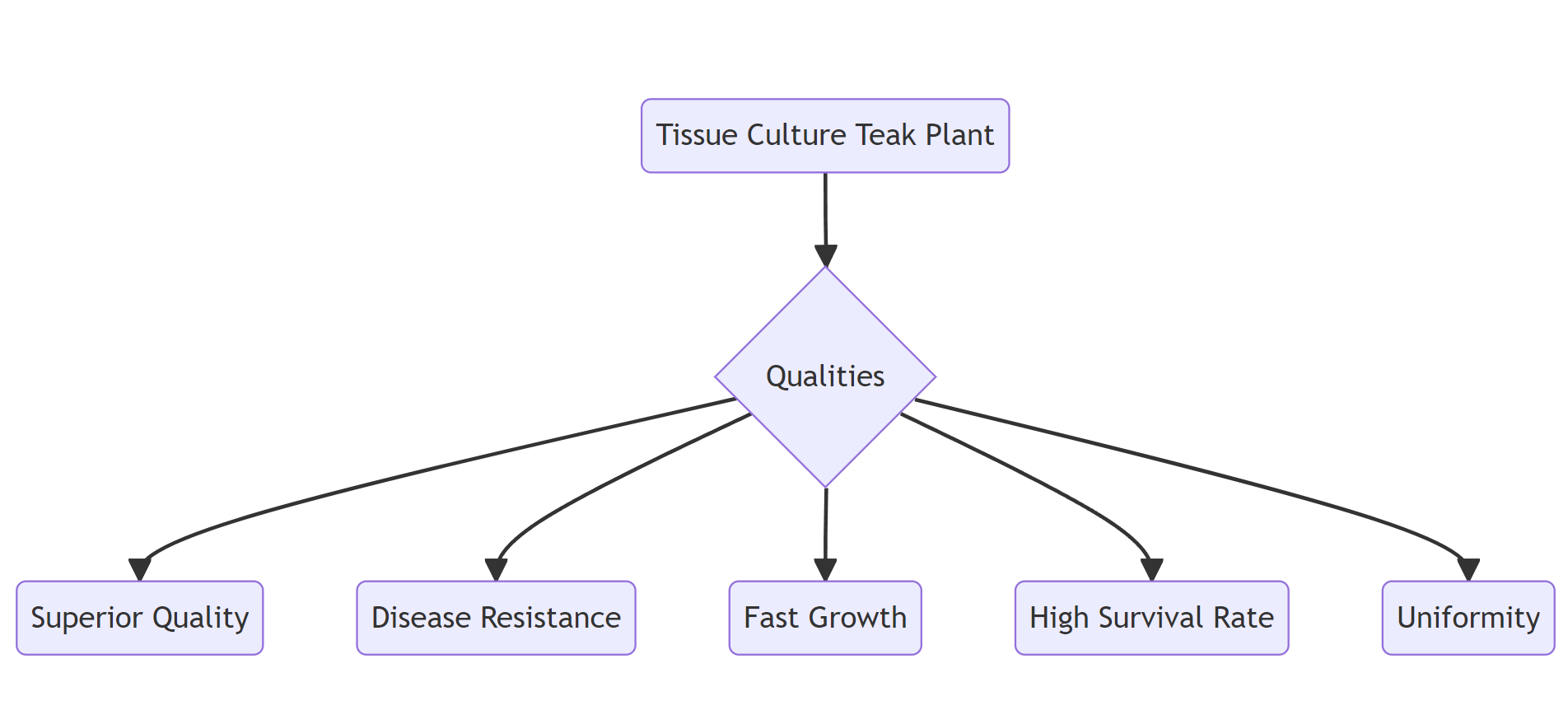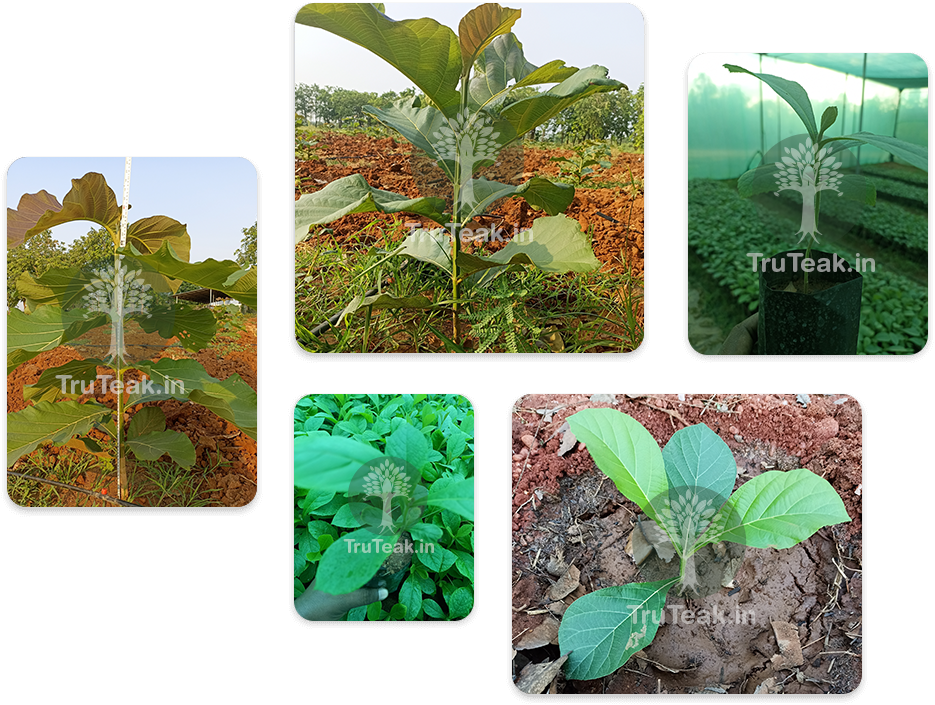



As we delve into the world of botany and horticulture, one particular specimen stands out - the tissue culture teak plant. Famed for its impeccable qualities and sustainable cultivation, it's no wonder this variant of teak plant has garnered substantial attention in recent years.
In this comprehensive guide, we shed light on everything you need to know about tissue culture teak plants. Let's embark on this botanical journey, illuminating the diverse aspects of this extraordinary plant and its cultivation.
Download Brochure| Minimum Order Quantity | 100 Plants |
| Soil Types | Red Soil, Black Sandy Soil, and all types of soil except clay soils. |
| Color | Green |
| Botanical Name | Tectona Grandis |
| Height When Fully Grown | upto 80 feet |
| Type | Wood / Timber |
| Other Necessities | Full Sun Exposure |
| Brand | TruTeak |
| Usage/Application | Garden / Plantation |
Tissue Culture of Teak Plants (Tectona grandis)
Teak (Tectona grandis) is a tropical hardwood tree species placed in the flowering plant family Lamiaceae. Though all teak comes under Tectona grandis, most famous varities are Nilambur Teak, Adilabad Teak, Mysore Teli Teak, Ballarsha Teak, Chandrapur Teak, Assam Teak, Burma Teak.

Tissue culture teak plants, derived from the process of teak tissue culture, bring forth a sustainable, efficient and high-quality alternative to conventional teak cultivation.
Through this technique, we can produce superior quality, disease-resistant teak plants that not only grow at an accelerated pace but also boast a high survival rate. Moreover, these plants offer uniformity in growth, ensuring a seamless plantation experience.
| Stage 1: Explant Selection | The first stage involves the selection of an explant from a superior quality teak tree. The explant, usually a small piece of tissue or organ, is carefully chosen considering its high-quality attributes. |
| Stage 2: In Vitro Sterilization | After explant selection, the tissue undergoes an in vitro sterilization process to eradicate potential contaminants, ensuring the healthy growth of the plant. |
| Stage 3: Multiplication | The sterilized tissue is then introduced to a nutrient-rich culture medium, leading to the multiplication of cells and the formation of a callus. |
| Stage 4: Shooting and Rooting | In this stage, the callus is exposed to specific hormones that stimulate the growth of shoots and roots, forming complete plantlets. |
| Stage 5: Hardening | The final step of the tissue culture process involves the acclimatization or hardening of the plantlets, preparing them for transfer to natural conditions. |
Tissue culture teak plants represent the future of teak cultivation. With their superior qualities, increased productivity, and environmentally friendly nature, these plants are poised to revolutionize the teak industry.
As we continue to explore innovative techniques in horticulture, embracing tissue culture teak plants is a step towards a more sustainable, efficient, and prosperous future.
Remember, the choice of tissue culture teak plants is not just a decision, it's a commitment to quality, sustainability, and the future of our environment. Join us in this commitment and experience the future of teak cultivation today.
